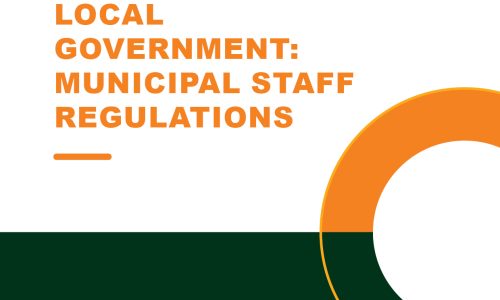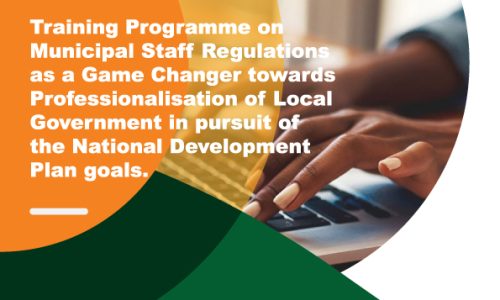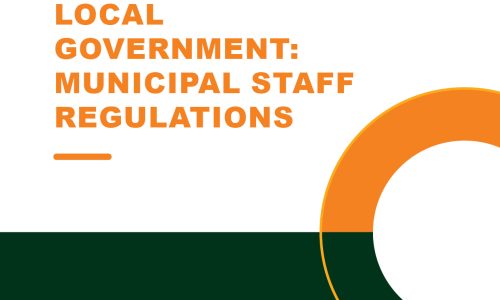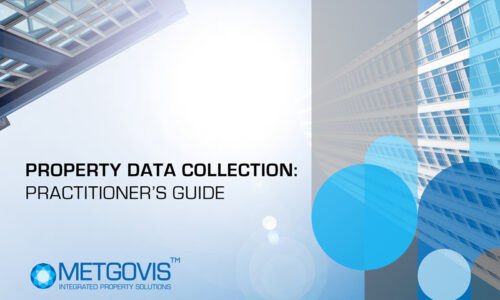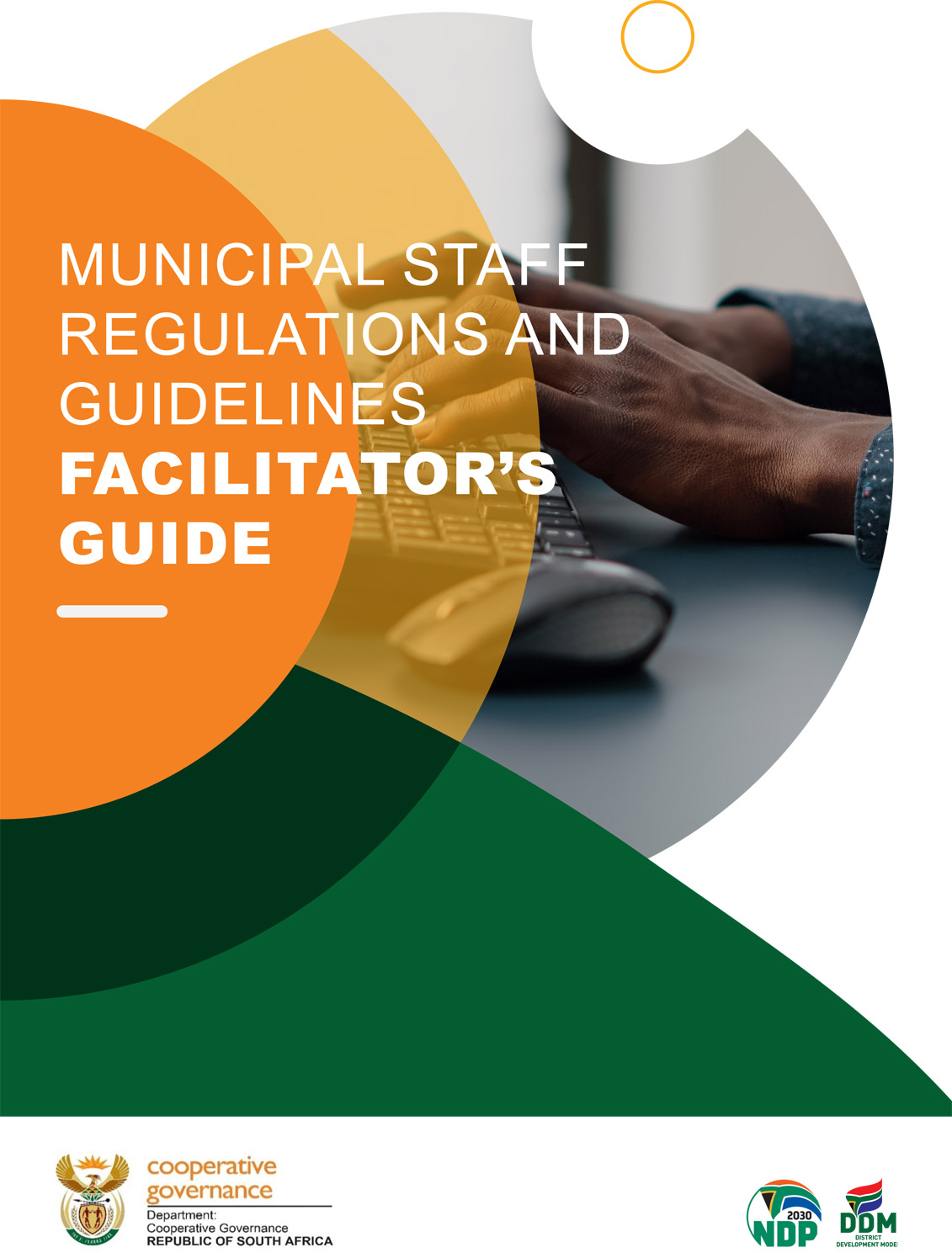MUNICIPAL STAFF REGULATIONS AND GUIDELINES: FACILITATOR’S GUIDE
Welcome to this learning programme of the Department of Cooperative Governance (DCoG) – Municipal Staff Regulations and Guidelines. As the Facilitator of this programme, it will be your responsibility to guide participants / learners through this learning programme. The Facilitator is the person that helps to achieve learning outcomes by providing assistance and guidance.
Overview
Welcome to this learning programme of the Department of Cooperative Governance (DCoG) – Municipal Staff Regulations and Guidelines.
As the Facilitator of this programme, it will be your responsibility to guide participants / learners through this learning programme. The Facilitator is the person that helps to achieve learning outcomes by providing assistance and guidance.
Facilitation is about leading people[ref]Participants / learners[/ref] through processes towards agreed-upon objectives in a manner that prompts participation, ownership, and creativity from participants. Facilitation enables access to the learning programme and promotes or supports the participant to advance.
Facilitation is a style of “instructing” participants / learners effectively. This should be conducted in a manner that is appropriate to specific participants / learners. Facilitation focusses on learner-centredness that is non-critical, non-directive, self-directed, and reflective and where participants / learners participate within the learning process.
You are a Facilitator, not a lecturer or a teacher. Facilitators concentrate on providing resources and opportunities for learning to occur, rather than manage and control learning.
Within the context of outcomes-based education, teachers and educators are replaced by a facilitator. The learning process is no longer defined as the transmission of knowledge but rather as the process of helping participants / learners to understand information and to transform it into their own personal applied knowledge. Knowledge is displayed through practical application.
As you embark on this training programme, remember that government and the people of South Africa are in this learning process together. Our success depends on the effective and collective participation of all the citizens of South Africa.[ref]Mr. E.N. Mthethwa (2011)[/ref] You are urged to partner with the participants / learners and guide them through this programme. The outcome is the transfer of necessary theoretical and practical skills to the participant / learner as intended by the outcomes / objectives of this learning programme.
It is necessary for you, as the Facilitator, to create a safe learning environment, where the participants / learners may make mistakes or fail to understand a concept initially. Your function is to support the process in such a way that the participant / learner will achieve the set outcomes / objectives successfully.
Curriculum
- 1 Section
- 15 Lessons
- 10 Weeks
- Overview of Learning Programme15
- 1.11. Objective of the Learning Programme
- 1.22. Specific Outcomes of this Learning Programme
- 1.33. Relationship between Facilitator’s Guide and Learner Guide
- 1.44. Facilitation Method
- 1.55. Alignment
- 1.66. Programme Structure
- 1.77. Assessments
- 1.88. Delivery
- 1.99. Facilitator Report
- 1.1010. Learner Support Logs / Registers
- 1.1111. Attendance Register (Blended facilitation)
- 1.1212. Attendance Register (Hybrid facilitation)
- 1.1313. Facilitating Guidelines and Instructions
- 1.1414. Pre- and Post- Learning Programme Assessment
- 1.1515. Measuring Skills Transfer through Evaluate Learning and Facilitation

